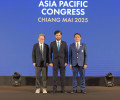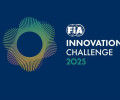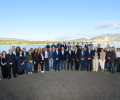The problem with vehicle emissions and consumption information and how it can be solved

Digital technology and the Internet are having a fundamental impact on society, including how we behave as consumers. As consumers, we value transparency, our expectations are high and tend to grow as the connectivity increases. The automotive industry needs to strengthen trust among end-users, promoting more transparent practices, and work closely with governments to achieve the best possible outcomes in terms of performance. More transparency leads to more sustainable consumption.
The need for independent consumer programs
On the subject of independent consumer testing programmes, Andrew McKellar, the FIA Secretary General Automobile Mobility and Tourism stated the following: “Trust has to be earned, and it comes from ensuring an honest and transparent relationship with consumers. We should not only rely on vehicle manufacturers to self-regulate in relation to the vehicles that they make and sell. What we are seeing currently reinforces the importance of independent testing to inform consumers about the divergence between real-world and laboratory vehicle emissions performance.”
Independent consumer testing programmes have proven to be extremely effective in improving industry standards and the overall quality of the products on the market. They can also effectively contribute to building consumer trust, as well as encourage them to purchase the most sustainable products on the market.
Governments should either create or encourage the establishment of independent consumer assessment programmes as a key element for building trust in vehicle emissions and efficiency performance.
A more consistent regulatory framework for the industry
Industry collaboration needs to increase with regards to common ways of improving vehicle energy efficiency and emissions performance, both for heavy duty vehicles and for passenger cars. The Worldwide harmonised Light vehicle Test Procedure (WLTP), for example, defines a global harmonised standard for determining the levels of pollutants and CO2 emission, fuel, and energy consumption for passenger cars. The WLTP can better simulate real driving conditions, with more modern and realistic driving scenarios.
International conventions developed within the UNECE frameworks also play a key role in creating a consistent standard for vehicle design, safety and environmental performance. Extending the application of international agreements would significantly contribute to improving competitiveness, safety and energy efficiency in the transport sector, with a clear benefit for the consumers.

 Facebook
Facebook Twitter
Twitter






